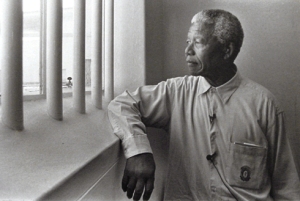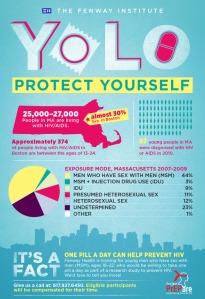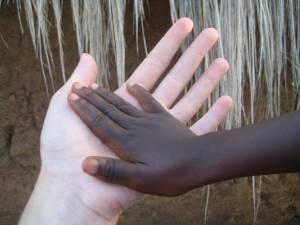How does culture affect the way a nation receives, perceives, and administers healthcare? For this post, I asked Kathy Laytham, RN, MSN, to guest-write a post for my blog reflecting on her unique experiences living as an American healthcare professional in Taiwan.
Health care reform in the United States has brought the health care systems of many of the world’s countries into the spotlight as politicians, medical providers and citizens alike try to wrestle with this massive undertaking. Taiwan’s public health care system has received a lot of attention for its ability to provide affordable coverage for high-quality care for 99% of its population. Here are some comparative figures that help fill out the picture a little more:
|
Taiwan |
United States |
| Average # of patients seen by a primary care physician per week[1] |
128 |
85 |
| Average # of outpatient visits/person/year[2] |
11.8 (this is the world’s highest # of outpatient visits per capita) |
5.8 |
| % of GDP spent on health care[3] |
6% |
16% |
| Average co-pay[4] |
$3 |
$5-$25 |
| Dollars spent on health care per head/year[5] |
$1745 |
$6719 |
These facts provide a foundation for understanding Taiwan’s healthcare system, but anyone who has lived overseas for an extended period of time knows that statistics do not paint the full picture of a country’s beliefs surrounding health care. To truly know a culture, one must look beyond the figures and data and experience real life.
Gaining understanding of a culture has been likened to an iceberg. When we initially look at an iceberg, we think that what we see is what we get. The same with culture: we falsely assume we grasp a particular people group because of what we see. The truth is icebergs are only one tenth above water, so of course, that leaves us with nine tenths of the mass below the water.
There are many things below the water of a culture that affect how people receive, perceive, and administer health care; however, I will only reflect on a few of the things I have experienced while living as a health care professional in Taiwan.
Religious beliefs and the relationship of humans to the supernatural AND concepts of justice, fairness, punishment, and right conduct
Many Taiwanese people take a fatalistic approach when viewing health care, meaning they believe if they are ill, it is their fate. At the onset of their sickness they will see a doctor, but the patient lacks initiative in learning about ways to improve their outcome. This is linked to their beliefs in reincarnation, as they believe they are suffering the consequences of their former life. For example, parents who have children with cerebral palsy will not be active in finding appropriate therapies to help their child. Instead, they believe the child, and possibly themselves as parents, are receiving the just punishment they deserve.
Professional status and level of education
I often accompany migrant workers (Filipinos, mainland Chinese, Vietnamese, and Indonesians) and expatriates to the doctor to serve as an advocate for their health. When I initially began doing this, I was appalled at the approach physicians were accustomed to using in their dealings with patients. It reminded me of the stories I heard about physicians in the States about 30 years ago. The physician is the expert and they are not to be questioned. Thankfully, I have found the doctors to be very gracious in my questioning and most of them will spend the time necessary to care for the patients. But, I have heard from my Taiwanese friends, representing multiple levels of education, that this is quite the exception (due to my being an American of Caucasian descent and a healthcare professional). Most Taiwanese patients would not even think to question the doctor, and if they did it would not be warmly received.
Conceptions about spread of disease
After almost seven years, I am still attempting to understand the impact population density has on health care in Taiwan. My background in the U.S. was in rural and suburban settings where infectious diseases were serious, but the threat of widespread pandemic or contagion was minimal. Taiwan is the second most densely populated country after Bangladesh. The density influences so many of the cultural perceptions including something as simple as hand, foot and mouth disease. In the United States, this is a fairly benign disease. I was serving as the school nurse last year when there were some cases at the American school. The school consists mainly of Taiwanese students. The parents were up in arms about this illness. I was clueless about why they were so nervous and was attempting to “educate” them about the nature of the disease. Thankfully, the school secretary educated me. She said that there was a massive outbreak of hand, foot and mouth disease in Taiwan in 1998 affecting 1 million people, with hundreds having a severe form and 70+ dying from this condition. Seek first to understand, then to be understood.
Food preferences and rules concerning consumption
One area regarding food preferences and cultural beliefs involves dzwo ywe dz. This is translated as sit one month child. It is a strongly held tradition that after a woman has a baby she is to stay indoors for one month. She is to eat only “hot” foods and drink only soup broth, usually containing chicken parts, wine and Chinese herbal medicine. The woman should never wash her hair or exercise during this time. The belief is that if the woman complies with these rules, and many others, in the first month postpartum, she will reset her body’s physiological state and have good health in the future. She also will ward off any osteoporosis, headaches and other body ailments as a result. Most of my friends follow this advice, some because of pressure from mother-in-laws or other family members. When I have questioned my friends about this practice, some of them wonder if it is nonsense, but most believe it to be legitimate and all of them are compliant.
In conclusion, I will say one more thing about icebergs. There are still a lot of things scientists are learning about icebergs and they are extremely difficult to study, requiring much persistence and precision. While we know where icebergs come from and have a general idea of their composition, every expedition to an iceberg uncovers something new. This has been my incredible experience while living in Taiwan – and I am loving the exploration.
Kathy has resided in Kaohsiung, Taiwan for 7 years. She is a family nurse practitioner who has found creative ways to use her skills abroad. Here are just a few positions she presently holds:
- Instructor for nursing students at I-Shou University
- Primary nurse for international shipping company, which includes DOT collections, CPR instruction and emergency consultations from crew at sea
- Part-time nurse at American School
- Health assessment consultant at local orphanage
- Copyright editor for nursing professors who desire international publication
[1] Jui-Fen Rachel Lu, William C Hsiao Health Aff (Millwood)May 2003 (Vol. 22, Issue 3, Pages 77-88)
[2] ibid
[3] ibid
[4] ibid
[5] Reid, T. R. (April 15, 2008). “Taiwan takes fast track to universal health care”. All Things Considered. National Public Radio.



